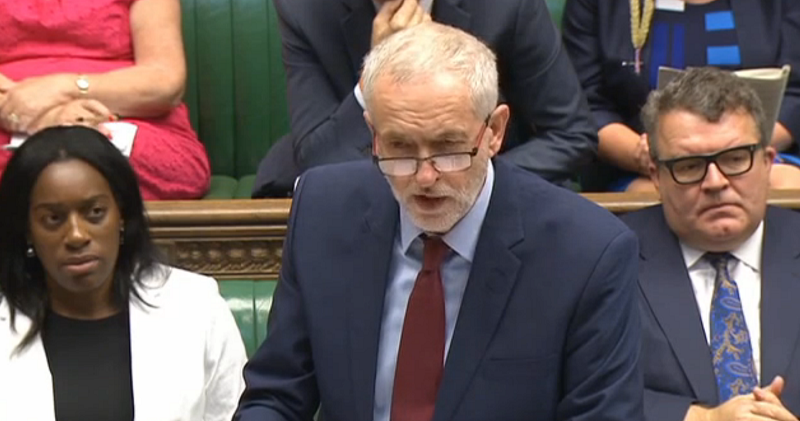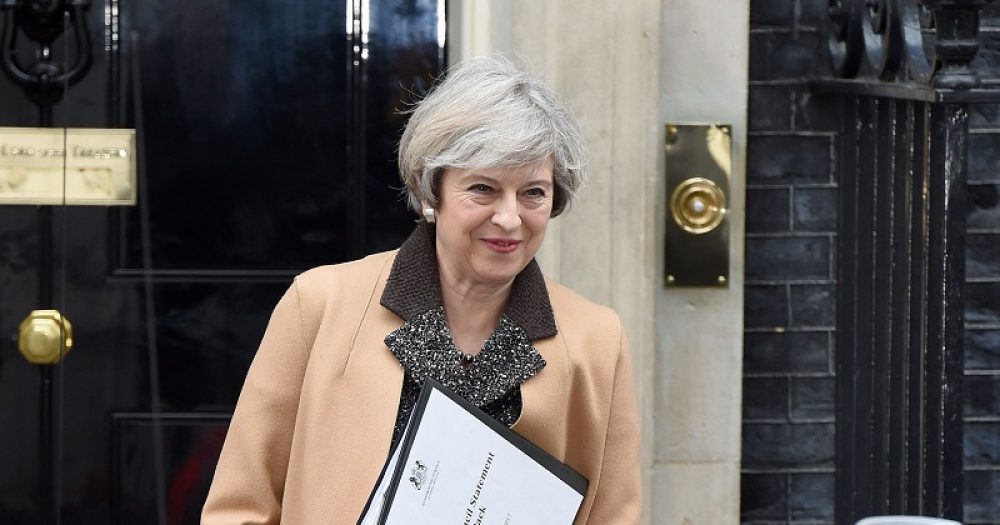A vote to lift the 19-year ban on new grammar schools could be postponed until after the next election to guarantee its passage through parliament, Schools Week understands.
Mounting opposition among Conservative MPs has prompted discussions about whether a vote is needed before May 2020.
One senior Conservative MP told Schools Week that as many as 40 Tory MPs had “serious concerns” about the proposals, which would mean a “very bumpy ride” for any vote.
“There are enough people who can ultimately defeat it,” the MP said. “I actually wonder whether they need to have a vote this side of a general election. I understand they might invite applications for [new schools] and then go through the process and put it in the manifesto.”
People are asking if we have to have a vote on it
Sources familiar with the Department for Education (DfE) say that the government could approve a school on a non-selective basis and then design a second, quick-turnaround route for it to become selective once the law had changed.
This approach would allow it to gather expressions of interest and prepare to open new selective schools in this parliament, but delay the vote on the ban until after May 2020 when it would be easier to get through.
The creation of new grammar schools was not included in the Conservative party’s 2015 general election manifesto, so MPs cannot be forced to approve the move. Many in the House of Lords are also opposed to the plan.
However, if Theresa May wins the 2020 general election with a pro-grammar policy in the manifesto, rebel MPs would be pressured into line. The House of Lords, where the government does not have a majority, would be compelled to support the decision of MPs.
“There is still a definite nervousness about more selective schools. I don’t think any of the concern has gone away,” the Conservative MP said.

“People are asking if we have to have a vote on it. There is talk about a white paper. But it was interesting that in [May’s] article in The Telegraph there was no mention of grammar schools. They are trying hard to use other words and talk about other kinds of schools, but clearly the appetite has not gone away. They are determined to see this happen.” The article appeared in early March.
The government is due to publish a white paper soon in response to a consultation on grammar schools.
The campaign against more selection has been hard fought by rebel MPs and the Labour party, but hit a snag after Scottish National Party MPs said they might not take part in any vote on grammars.
This would mean a large number of Conservative rebels would be needed for the government to be defeated.
Carol Monaghan, the SNP’s spokesperson on education, said that although she “fundamentally disagrees” with the idea of grammar schools, her party would only intervene if there were budgetary implications for her country.
“I would love to throw my weight behind the opposition to this, but unless there is an impact on Scotland’s budget it’s not something we would be looking to get involved in.”
The DfE would not confirm if a vote was planned in this parliament








The Tory MP quoted above said there was no mention of grammars in May’s Telegraph article. S/he couldn’t have been paying attention. May said the forthcoming Schools White Paper would ‘enable the creation of new selective free schools so that the most academically-gifted children get the specialist support to fulfill their potential.’
This implies the majority of children (75%) not deemed ‘academically-gifted’ on the basis on a couple of short tests at age 11 will not receive any specialist support. Voters might interpret this to mean that 75% of children are deemed second class and not worthy.
Following yesterday’s humiliating climb down over national insurance contributions for the self-employed because the Tory 2015 Manifesto had promised no tax rises, perhaps May will tread equally carefully over introducing a major change to English schools which was NOT mentioned in the Manifesto.
Or perhaps she’ll sanction what’s already happening – behind-the-scenes manoeuvring to set up new selective schools. Meetings during and after the consultation about Schools that Work for Everyone appear to have been dominated by the grammar schools and their representatives. http://www.localschoolsnetwork.org.uk/2017/03/exclusive-grammar-schools-dominated-dfe-meetings-during-and-after-consultation
We’re going to be in such a mess as a country by 2020 because of Brexit that the introduction of grammar schools will be relegated to a sideshow at best.
It would be interesting to know what proportion of Conservative voters would like the return of selective schooling compared with the proportion of Conservative MPs. I suggest the MPs are far more against grammar schools than those who voted for them are. Just as most MPs are more against Brexit than those who voted for them. If you look at the comments in the Daily Mail under any article about grammar schools, the vast majority of their readers (ie Tory voters)want them.
“I suggest the MPs are far more against grammar schools than those who voted for them are. Just as most MPs are more against Brexit than those who voted for them. If you look at the comments in the Daily Mail under any article about grammar schools, the vast majority of their readers (ie Tory voters)want them”.
It all depends how the question is phrased. Asking whether people want to see more secondary modern schools would provide a negative response. In any case, the reason that successive ministers phased grammars out (and Mrs Thatcher closed more than any other SofS) is people soon go off the idea when their son or daughter fails to gain a place at one.
Chalkface – Most readers who comment are ALWAYS in favour of grammar schools in that newspaper whenever the subject of the article has anything to do with grammar schools.
According to Philip Johnson march 2012 Telegraph: “Whenever pollsters ask the public if they want new selective schools, 70 per cent or more say yes. When the last government gave campaigners the chance to shut down grammars through local referendums, people voted to keep them.”
I agree with your comment that many of the 70% who say ‘yes’ will go off the idea when their own child does not pass the test. (But if the child gets in on appeal, they will suddenly be in favour again).
researchbriefings.files.parliament
“The number of state grammar schools peaked at almost 1,300 in the mid-1960s when around one-quarter of all pupils in state secondaries attended grammars.”
This leaves 75% not attending. Many of this group did not then, and still today would not have aspirations for their child to go to grammar school, so not all the 75% are discontented. I taught a boy last Year who passed the exam and was offered a place but the parent turned it down – even though the boy wanted to go. Sometimes one parent wants the child to go to grammar and the other opposes it.
But I agree that the amongst the 70% who want grammar schools, from this group many will end up being against them when their own child does not pass the exam. So their opinion is based on ‘my child could not have this education, so therefore no-one should have this education.’ On this basis we might as well pull down all the most expensive houses on the basis that most people cannot have them.
As for you comment on Mrs Thatcher – this was made about three times a week in the DT when they allowed comments. Perhaps you even said it there yourself.
No-one ever mentioned when they said this that Mrs Thatcher was in Heath’s government when she did this: Philip Johnson march 2012 Telegraph: “Edward Heath’s Conservative government, with Margaret Thatcher at the education department, carried on with this (Labour’s) policy.”
Mrs Thatcher herself said: Margaret Thatcher Foundation 1966: “We believe that grammar schools should continue to be a vital part of education and that secondary modern schools should offer opportunities for non-academic children, as long as there is an easy transfer to the grammar school. There must be a freedom of choice”
She also did not get her own way in other policies – capital punishment (she was in favour but most Tory MPs were not), Rhodesia, the EU. She was in a minority opinion in the government more than most people realise.
And she did not order grammar schools to become comprehensive – applications were made to her by local authorities and she approved them. So it was the local authorities that made these applications. Manchester closed all their grammar schools, and neighbouring Trafford did not. This decision to close one lot and leave the other lot alone was not Mrs Thatcher’s – it came from the local authorities. If Manchester had not wanted to close all its own grammar schools, they would still all be open today.
I am not excusing the Conservative Government, or even Mrs Thatcher herself (As PM later she did not reopen any grammar schools). I am making the point that this policy of closure was due to her bending to the will of the rest of parliament and the will of the local authorities. A couple of years or so ago there was a group of MPs in parliament petitioning to open more grammars and I think only about 80 Conservative MPs signed it; in other words a small minority, far smaller than the 70% of the public who want them.
As soon as Nick Timothy’s kicked out as Maggie May’s chief adviser because of his shifty role in the Thanet election, the grammar school nonsense will be gone. Good riddance to both.